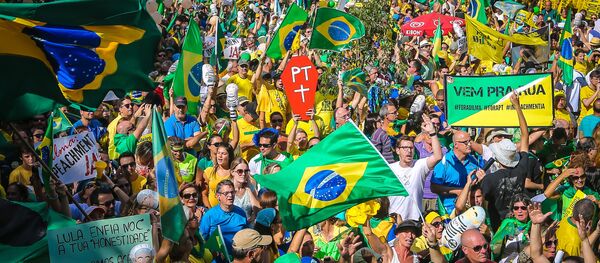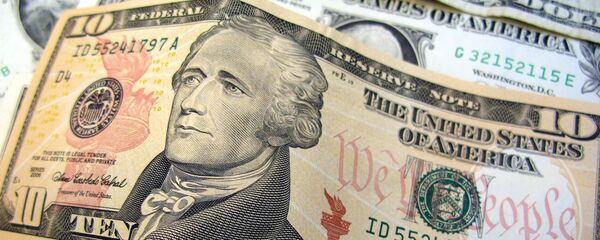The Panama Papers leak has left an unpleasant aftertaste for those who closely monitored the case: instead of nailing real wrongdoers for their illicit operations and tax evasion, the exposure has played directly into the hands of a brand new tax haven, namely the United States of America.
"While the world's eyes were on the identities of alleged offshore money holders, they failed to consider the longer-term consequence of the huge revelations. The one country so far to benefit from the Panama Papers revelations is the country that is rapidly becoming the new 'Panama' or better, the new Switzerland, namely the United States of America, the initiator of attacks on other hot money havens offshore over the past two decades," American researcher and author F. William Engdahl writes in one of his recent articles for New Eastern Outlook.
In his turn, Craig Murray, human rights activist, author and former British Ambassador to Uzbekistan, posed the question: "why is there no mention at all of the use of Mossack Fonseca by massive Western corporations or Western billionaires — the main customers."
So, what lies beneath the exposure?
While financial expert Ernst Wolff suggested in his interview with Sputnik that the Panama Papers leak was the Washington elite's way "to drain certain tax havens and position (the US) as the new largest tax haven," Engdahl suggests taking a deeper into the problem.
While, despite all odds, emerging powers continue to gain ground on the world arena, the Washington financial establishment foresees trouble brewing for the US dollar.
Engdahl recalls that the first time the dollar came out on top was in 1944, when global powers stuck a historic deal in Bretton Woods, New Hampshire. The dollar became the world's basic reserve currency. Furthermore, by the end of the War in 1945 "the US Federal Reserve held the overwhelming bulk of world monetary gold," the researcher stresses.
It was the age of the gold-backed dollar.
"Yet by the end of the 1960s the dollar world had undergone significant change," Engdahl continues pointing to the fact that Western European economies at that time "were rapidly becoming an export power challenging American obsolescent industrial goods."
To preserve the dollar's positions President Nixon declared the US currency a "free-floating paper no longer redeemable in gold." But that is of course, half the story.
In the early 1970s, the White House and then-Secretary of State Henry Kissinger manipulated Saudi Arabia and OPEC countries into selling their crude in US dollars only.
"By early 1974 the price of OPEC oil had been set some 400% above that of 1971. The dollar value soared against other major currencies as Germany, France and the rest of the oil-hungry world scrambled to find 400% more dollars to import their oil. Kissinger at the time wrote about 'recycling petrodollars.' The dollar would be backed, not by gold, but by oil," the researcher narrates.
What's the way out for the US dollar?
To answer this question Engdahl returns to the Panama Papers issue: the truth of the matter is that due to the leak the money flow has been redirected from old established tax havens to new ones, located in the United Sates.
"The under-regulated United States is rapidly becoming the 'new Switzerland' in attracting 'hot money' which includes everything from narco dollars from the international drug traffic to hiding of funds offshore by corrupt politicians," the researcher underscores.
It seems that in the eyes of Wall Street bankers and US financial elites "money has no smell."
"Drug cartels of the world are already clearly informed and a good share of the estimated $1.6 trillion of criminal funds annually are searching for new safe havens in Reno and other US hot money havens… From a golden dollar to a petro dollar to now a narco-dollar. It's pretty pathetic for the country that was once the world's leading industrial technology leader," the researcher concludes.



